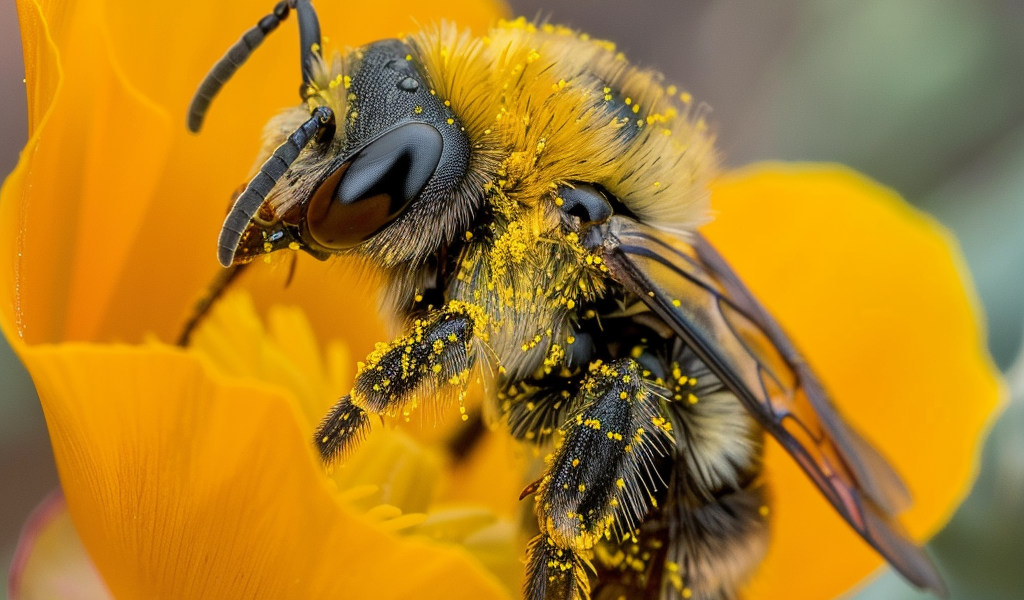Researchers have made a significant breakthrough in understanding the genetic makeup of the Mojave poppy bee, a specialist pollinator crucial for conservation efforts in the eastern Mojave Desert. The latest bee genome mapped as part of the ‘Beenome100’ project is Perdita meconis, a species known for its ability to thrive in drought conditions.
Scientists from the United States Department of Agriculture (USDA) Agricultural Research Service (ARS) and various university partners have successfully developed a detailed genome for the Mojave poppy bee. This achievement is part of the ambitious ‘Beenome100’ initiative, aimed at creating comprehensive genome maps for over 100 diverse bee species across the United States.
The Mojave poppy bee, restricted to the eastern Mojave Desert, plays a vital role in pollinating plant species like the Las Vegas bearpoppy and the dwarf bearpoppy. These plants, particularly the dwarf bearpoppy, are protected under the U.S. Endangered Species Act, highlighting the importance of the Mojave poppy bee’s conservation.
With the genome mapping of the Mojave poppy bee, researchers hope to gain insights into how genetic variations influence a bee species’ resilience to environmental changes, such as climate change and pesticide exposure. By understanding the genetic underpinnings of these bees, scientists aim to better protect and preserve bee populations facing threats from habitat loss and climate shifts.
The collaborative efforts of ARS, the University of Illinois, and researchers from various institutions in the United States and Canada have paved the way for a deeper understanding of bee genetics. Through projects like ‘Beenome100,’ the scientific community is working towards unraveling the mysteries of bee biology and ecology, ultimately contributing to conservation efforts and sustainable bee management.





